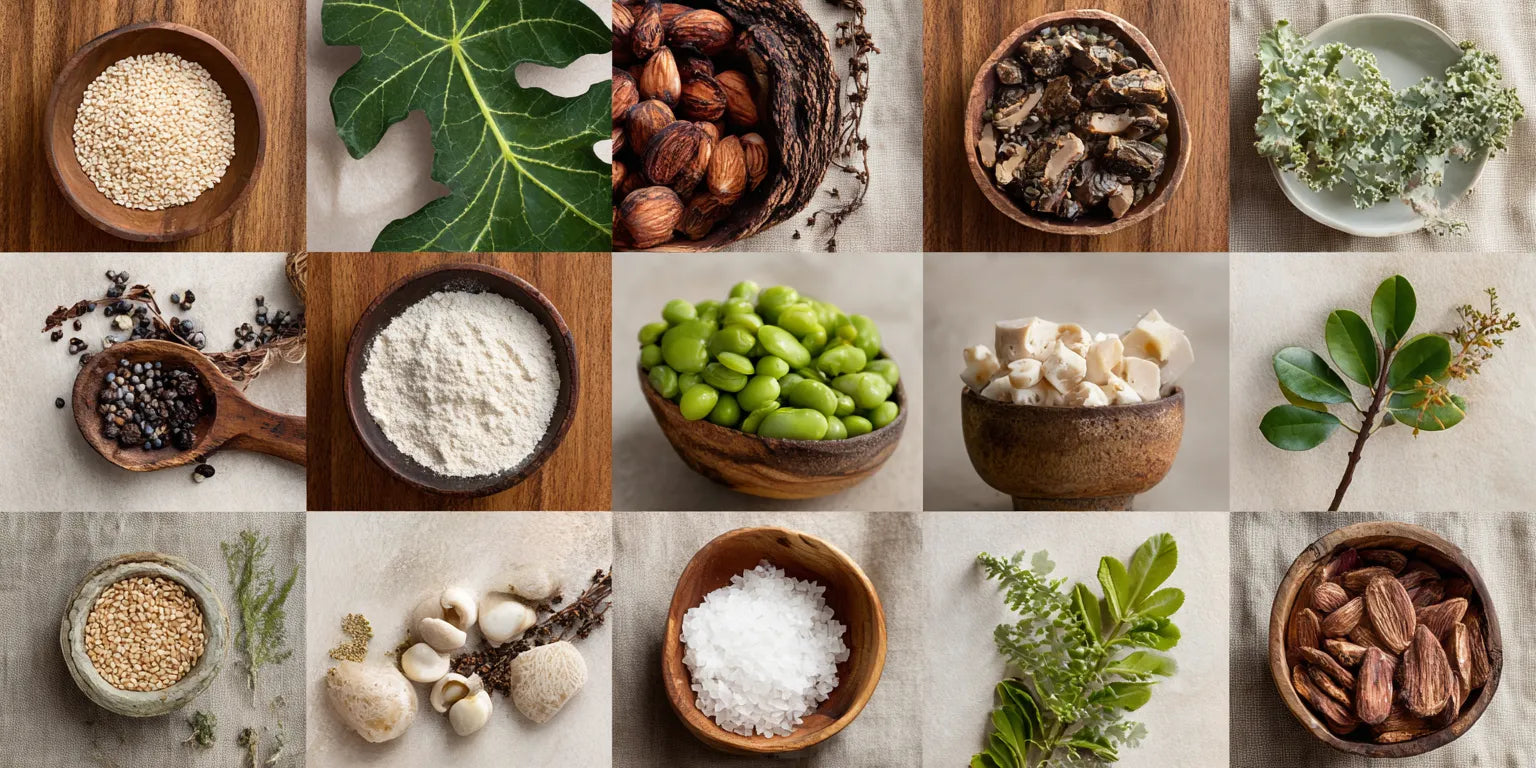Plant-Based Alternatives: Do Collagen Boosters Really Work for Vegans?

Collagen has become one of the most sought-after supplements in the wellness industry. It is commonly praised for its benefits in supporting skin elasticity, joint health, hair growth, and even gut integrity. However, traditional collagen supplements are derived from animal sources like bovine hides, fish skin, or chicken cartilage, making them off-limits for vegans and vegetarians.
This raises an important question for those following a plant-based lifestyle: Can collagen boosters made from plants actually work? And if they don't contain collagen, how do they help?
Let's break down what collagen is, why plant-based alternatives are different, and whether they live up to the hype.
What Is Collagen, and Why Is It Important?

Collagen is the most abundant protein in the human body, making up a major part of our skin, bones, muscles, tendons, and ligaments. It acts like the "glue" holding everything together.
As we age, natural collagen production declines, starting as early as our mid-20s. This can lead to:
- Wrinkles and sagging skin
- Joint discomfort
- Brittle nails and hair thinning
- Slower wound healing
Collagen supplements (often hydrolyzed for better absorption) aim to replenish what the body loses over time. But if you're plant-based, you're likely wondering: Is there a non-animal source of collagen?
Here's the Truth: There's No Such Thing as Vegan Collagen (Yet)
Despite what some marketing suggests, true collagen only comes from animals. Plants do not contain collagen, and as of now, there are no naturally occurring vegan collagen proteins.
That said, scientists are working on lab-grown, bio-identical collagen using genetically engineered yeast and bacteria, which could be a game-changer in the future. But for now, most "vegan collagen" products on the market are actually collagen boosters or builders—they don't contain collagen itself but instead support your body's ability to produce it naturally.
How Do Plant-Based Collagen Boosters Work?
Rather than delivering collagen directly, plant-based boosters aim to provide the building blocks and cofactors your body needs to make its own collagen. These typically include:
1. Amino Acids (from Plant Proteins)
Collagen is rich in glycine, proline, and hydroxyproline—amino acids that aren't always abundant in plant-based diets.
Vegan boosters often include:
- Pea protein
- Rice protein
- Soy protein
- Spirulina or chlorella (algae-based sources)
These help ensure the body has enough raw materials for collagen synthesis.
2. Vitamin C
Vitamin C is essential for converting proline into hydroxyproline, a key step in collagen formation.
Many vegan collagen supplements include high-dose ascorbic acid or natural sources like:
- Acerola cherry
- Amla
- Camu camu
3. Silica and Zinc
Both minerals support connective tissue formation and skin health.
- Silica (often from bamboo extract or horsetail) aids collagen cross-linking
- Zinc plays a role in cell regeneration and collagen enzyme function
4. Biotin and Other B Vitamins

These support healthy hair, skin, and nails, though they don't directly contribute to collagen synthesis.
5. Antioxidants and Polyphenols
Compounds from ingredients like pomegranate, green tea, resveratrol, and grape seed extract can help protect collagen from free radical damage, thereby preserving what you have.
Is There Any Evidence That These Boosters Work?
Here's what the science says:
- Vitamin C, zinc, and silica are all clinically validated to support collagen production and skin health.
- Adequate protein intake, especially with key amino acids, is necessary for the body to make collagen.
- While there's limited direct clinical research on vegan collagen booster supplements as a category, the individual nutrients they contain are well-studied in the context of skin and connective tissue health.
A 2020 review published in Nutrients emphasized that collagen production can be supported through a combination of amino acids, antioxidants, and essential nutrients—all of which are commonly included in plant-based collagen boosters.
How Do They Compare to Animal-Based Collagen?
Animal collagen supplements contain hydrolyzed collagen peptides—already broken down into usable forms, which may be easier for the body to absorb and use directly.
In contrast:
- Plant-based boosters require the body to do the work of synthesizing collagen using nutrients provided.
- Results may be slower or more dependent on overall diet quality and gut health.
Still, if you're vegan or vegetarian, this is the most ethical and accessible path to support collagen naturally—no animals involved, and no compromise on your values.
What to Look for in a Vegan Collagen Booster
Not all products are created equal. Here's what to check before you buy:
✅ Vitamin C (at least 100% of daily value)
✅ Silica and zinc in bioavailable forms
✅ Complete amino acid profile (from plant proteins)
✅ No added sugar or fillers
✅ Third-party tested for quality and safety
✅ Bonus: Look for ingredients like hyaluronic acid, MSM, or tremella mushroom for added skin hydration and elasticity benefits
Lifestyle Habits That Support Collagen
Even the best supplement won't help if your lifestyle undermines collagen production. Consider:
- Limiting sugar and alcohol, which break down collagen through glycation
- Wearing sunscreen daily to protect from UV damage
- Getting adequate sleep and hydration
- Eating a balanced, nutrient-dense plant-based diet rich in antioxidants
- Managing stress, which increases cortisol and depletes skin-supportive nutrients
The Bottom Line: Can Plant-Based Collagen Boosters Work?
Yes—but with realistic expectations. They don't contain collagen itself, but they can help your body make more of it, especially when paired with a supportive lifestyle.
For vegans, vegetarians, or anyone avoiding animal products, collagen boosters offer a smart, ethical way to support skin, hair, and joint health from the inside out. While they may not deliver overnight results like animal-derived peptides, they contribute to long-term resilience and vibrancy.
And as biotechnology evolves, vegan collagen alternatives made from fermentation may soon close the gap entirely—giving plant-based consumers a truly collagen-rich option.

















